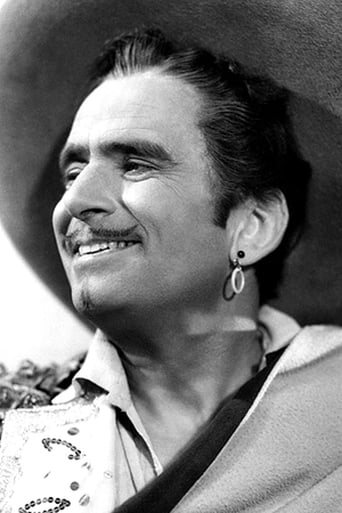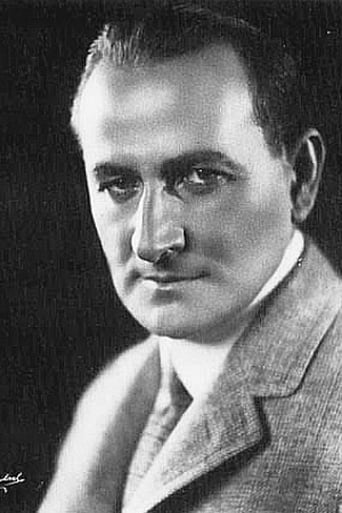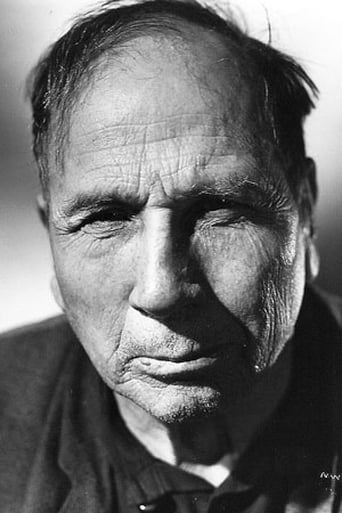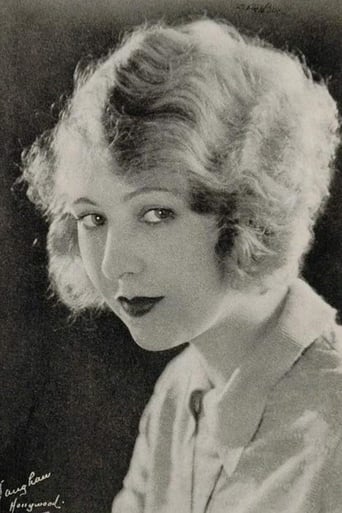GamerTab
That was an excellent one.
Vashirdfel
Simply A Masterpiece
Kaydan Christian
A terrific literary drama and character piece that shows how the process of creating art can be seen differently by those doing it and those looking at it from the outside.
Philippa
All of these films share one commonality, that being a kind of emotional center that humanizes a cast of monsters.
MartinHafer
While Douglas Fairbanks is famous for his fantasy and adventure films (such as THE THIEF OF BAGDAD, ROBIN HOOD and THE MARK OF ZORRO), he also made a variety of other films...including some westerns early in his film career. TCM showed two of them tonight, THE GOOD BAD MAN and THE HALF-BREED. Both are about equally enjoyable, though THE HALF- BREED is exciting to watch because of its location filming in Boulder Creek (near San Jose) and Calaveras County (near Yosemite). Seeing all these giant redwoods is reason enough to see the movie!When the film begins, a native woman has a baby and has been dumped by the father of the child. She is friendless and neither the whites nor Indians want anything to do with her. She then gives her baby to a nice old naturalist living in the woods then she kills herself! So the child is raised away from civilization by the old man. When the old guy dies, the now grown Sleeping Water (Fairbanks) travels to the nearby town and learns that pretty much most of the white folks he meets are Indian-hating scum. He decides to leave and return to the woods and is soon joined by Teresa, a woman who has stabbed two perverts who couldn't keep their hands off her. Additionally, Nellie from town inexplicably has fallen for Sleeping Water...as has Teresa. What's next? See the film.While this is not a great film, it does do a nice job of humanizing the main character and the plot all centers on how trashy the 'civilized' white folks could be. In many ways, this is like a great silent western, THE SQUAW MAN...which is a must-see. As for THE HALF-BREED, it's very good for when it was made and ages reasonably well. Sadly, the film was restored by piecing together many different prints and some of them are pretty shabby condition- wise.
Michael_Elliott
The Half-Breed (1916)*** (out of 4)A young Indian woman brings her newborn son to the home of a white man where she drops it off and shortly later kills herself. The baby, part white and part Indian, grows up to live a normal life but when his caretaker dies, the townspeople run him out. Soon he sees various racial injustice and pretty soon finds himself in the woods with another outcast.THE HALF-BREED isn't the greatest film ever made but it's certainly an entertaining one that fans of silent cinema should enjoy. Douglas Fairbanks plays the title character and does a very good job with the role. Obviously the actor is very energetic but he manages to handle the small, quiet scenes just as well as any of the stuff that has him running around. The actor was very believable as the somewhat naive man who doesn't realize that people will hate him just because of his skin color.The film's story isn't all that original and deals with the half-breed going up against a sheriff who just happens to be his real father, although neither one realizes it. The film features some terrific visuals and especially the scenes in the forest. There's a terrific climax where a fire breaks out and the movie ends on a very poetic note. The main reason to watch this film is certainly for Fairbanks and you have to wonder what his female fans in 1916 thought about his nearly nude entrance at the start of the picture.
binapiraeus
"The Half-Breed" certainly is one of Douglas Fairbanks' most unusual and daring films. After having made so many hugely successful comedies and achieved the status of a superstar, he felt it was time for him to 'touch' on a subject still VERY controversial back in 1916: the fate of the Native Americans, who, while in the movie they were called 'children of nature', to the white Americans they were still 'children of a lesser God' - they didn't even possess civil rights yet at that time! And Doug not only had the courage to play a 'half-breed' (the mother of our hero here, called Lo Dorman - but in the 'old' restored version Dave Carson for some unknown reason, we'll come to that later on - was an Indian woman), but also to depict in ALL its cruelty the wrongs that were being done to the Indians by the 'white man', and even a romance of the 'half-breed' with a white woman! It was Doug's first drama - and a most provocative one...Unfortunately, it was a box office failure ('conservative' critics had seen to that, warning the audience about the 'immoral' content of the movie...); and unfortunately, after it had been considered lost for decades, the first thing that turned up in the 1980s was only a remnant of the original version, which confuses the viewer completely with its incoherency, and makes us believe that Lo's romance with Nellie (who now was called 'Peggy') would be the happy ending - which it wasn't...The original version had a running time of almost two hours, while the 'restored' version is only a rump of about 50 minutes - leaving out completely the MOST controversial part of Lo's competition with Sheriff Dunn (played by Sam De Grasse, the 'eternal baddie' in almost all of Doug's silent movies) for the favor of Nellie - who, on her part, surely WASN'T the demure, shy girl of pre-WWI USA, but one of the first 'man-eaters', years before the flappers and vamps made their appearance... And the MOST ironical thing of it all is - that Sheriff Dunn is actually Lo's father; and since he's obviously not only jealous, but also ashamed of his 'half-breed' son, he does everything to discredit him among the townsfolk! (And Doug's famous bathing scene almost in the nude - which director Allan Dwan had inserted especially for Doug's then wife Beth, who didn't want her husband to play a 'dirty, filthy character' - is also missing; much to the chagrin of today's female audience, of course...) But FORTUNATELY, in 2013, ANOTHER surviving copy of almost the complete movie was found, which makes us realize the TRUE plot - and the ending, in which, of course, Doug DOESN'T get Nellie (Peggy), but the Mexican dance hall girl Teresa (called 'Dolores' in the restored version); not because he would have been afraid of actually showing an interracial romance come true, but simply because amorous Nellie wasn't his type: he wanted a REAL, loving woman by his side! Anyway, no matter whether you'll only be able to watch the 'rump' version or the REAL restored one - this movie is a GREAT and VERY courageous drama about the 'children of nature', who are being destroyed by the 'white man', his 'civilization' and his 'firewater', and a deeply moving contemplation about the vanishing of the wilderness and the dubious 'triumph' of civilization.
dcole-2
This wonderful early silent by pioneering director Allan Dwan shows him in full mastery of film style -- excellent use of landscape, of close-ups, of action montage. The performances are all good, especially Alma Reubens as the woman who loves Fairbanks but thinks she'll never get him. A very fine script by Anita Loos. Well worth seeing -- and now you can because the film has been restored.




